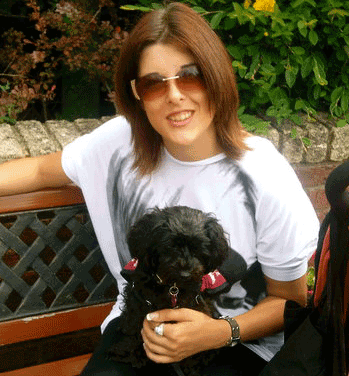
One of the many things I love about being involved with Enhance the UK is no two weeks are the same. This week we were privileged to be asked to attend a roundtable event organised by the Mental Health Foundation entitled Rights, Dementia and the Social Model of Disability: A New Direction for Policy and Practice. You might ask why would we be invited along to an event about dementia. For those of you who don’t know, we at Enhance the UK have developed a Deaf and dementia course.
The need for this was highlighted when the director and founder of Enhance the UK, Jennie Williams, met Lily and her daughter Dee. Lily was an older woman living in sheltered accommodation. She had dementia and was also a Deaf, British Sign Language user. Dee was concerned that care staff were not able to communicate effectively with Lily because of her dementia and were also not able to converse with her in her first language, BSL. She feared that this was leading to Lily’s basic daily needs being ignored and that she was completed isolated in her own home. After further investigation we found that the University of Manchester had highlighted that ‘very few support services were accessible or appropriate for Deaf people with dementia.’
Furthermore it is not only Deaf, BSL users who are finding it difficult to access appropriate support. Since the majority of dementia patients are elderly, hearing loss is also common among them. It is our belief that it is essential that anyone involved with supporting people with dementia also have a good understanding of deafness and hearing loss in order to be able to communicate effectively with and appropriately support the individual. We secured a contract with Hackney council and were able to deliver the Deaf and dementia training to various care professionals. The feedback from this course was very positive.
So, back to the roundtable event. Overall it was a fascinating event, one in which I feel was very worthwhile us as a charity attending. From my perspective, it really is shocking how the treatment and attitude towards people with dementia is firmly rooted in the medical perspective. Discussions on the day centred around how the social model of disability could be applied to improve things. For those of you who don’t know, the social model of disability states that how society is organised disables people rather than their impairment or difference. It focuses on removing barriers and encouraging society to become more inclusive. I could go on all day about this but for me personally a few things on the day hit home.
Early on in the day we had the pleasure of meeting Peter who is a wheelchair user. We had quite an in depth discussion regarding Enhance the UK and the attitude that we aim to perpetuate. We all sat down and I gave it no further thought. It wasn’t until the afternoon that I realised that Peter was one on the guest speakers who has dementia himself. This really should not have shocked me as I have a hidden disability myself, but it did. It really powerfully illustrated in my mind why people with hidden impairments find it so much more difficult in everyday life. There is a choice of either not disclosing the impairment, in which case should you need any support or adaption then you are unlikely to receive it, or having to tell everyone you meet what your impairment is which isn’t the best at times.
During the course of the discussions the dementia friendly community programme created by the Alzheimer’s Society was raised. This worthwhile scheme is firmly based in the social model of disability and is aiming to encourage communities to be inclusive of people with dementia in all aspects including attitude and physical environments which are easy to navigate. One of the delegates raised that currently dementia is ‘sexy’. The government is keen to support people with dementia and there is a lot of focus on this at present. However, it was agreed that this will not always be the case. It more than likely won’t be long before the focus moves away onto something else and funding and support will be harder to come by. It was suggested that rather than focusing on dementia friendly communities we should be focusing on inclusive communities. This to me hit a chord. Wouldn’t it be fantastic if all disability organisations worked together to aim to create inclusive communities which are accessible to all. Currently, for a number of reasons this is a pipe dream but one in which I like to indulge in.
